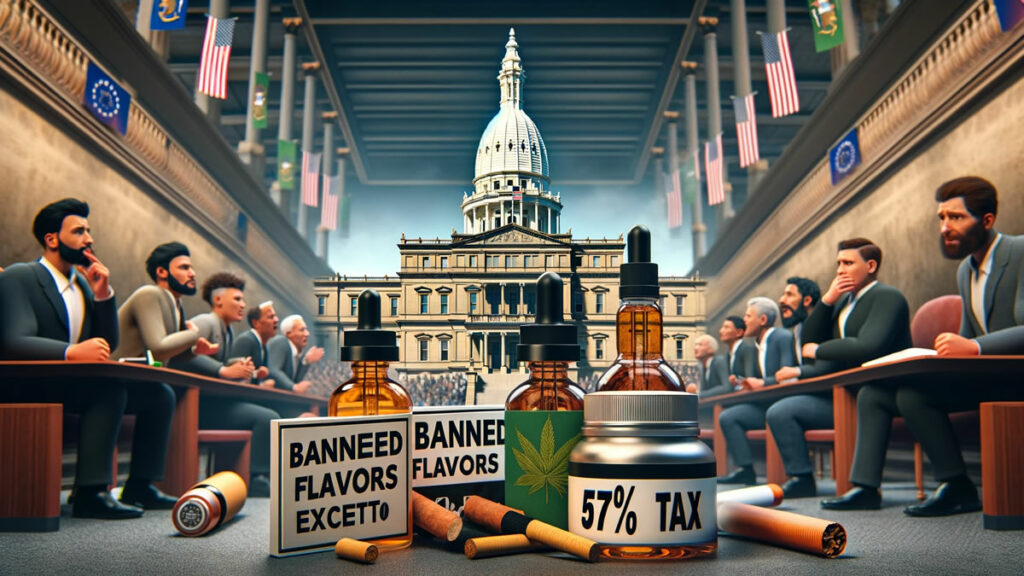Newly introduced legislation in Michigan threatens to eliminate access to popular flavored vapes and heavily tax remaining products. If passed, the laws would likely increase cigarette smoking while forcing many vapers into the black market.
Flavor Ban and 57% Vape Tax Proposed
The bill package includes:
- A ban on all vape flavors except tobacco (SB 649)
- A 57% wholesale tax on vapes, nicotine pouches and smokeless tobacco (SB 648)
- Potentially banning online sales to consumers (SB648)
- Repealing local preemption rules on vape/tobacco regulations (SB 647)
These proposals closely resemble past failed efforts in Michigan to impose strict vaping restrictions. Health advocates argue such measures protect youth, but evidence suggests unintended public health consequences.
Impacts on Vapers and Harm Reduction
The proposed policies would likely:
- Force many vapers to return to deadly cigarettes
- Expand the illicit underground vape market
- Close most vape shops across Michigan
- End flavored vape sales in convenience stores
- Impose financial hardship on rural vapers unable to buy online
A 57% tax would be among the highest in the nation. It could price legal vapes out of reach for poorer demographics especially.
Banning menthol cigarettes could also lead to conflicts between police and minority communities. Menthol cigarettes are preferred by most Black smokers.
Interest Groups Lobbying for New Restrictions
Anti-vaping organizations like the Campaign for Tobacco-Free Kids and Bloomberg-funded groups are heavily lobbying legislators to support the bills.
Similar legislation has been repeatedly introduced since Governor Gretchen Whitmer first unsuccessfully tried banning flavors in 2019. Public health advocates have continued pressure to enact vape prohibitions despite past failures.
Ironically, many legislators backing vape bans also strongly support recreational marijuana legalization in Michigan. This includes permitting flavored cannabis vapes attractive to youth.
Concerns Over Policy Impacts on Health
Public health organizations and vaping advocates argue flavor bans and excessive taxes on reduced-harm products like vapes will drive up cigarette smoking.
Research shows vapes and cigarettes are economic substitutes. Policies disadvantaging vapes compared to cigarettes inadvertently protect cigarette sales and use. This includes among teens.
While the goals may be admirable, evidence suggests these proposed laws could worsen nicotine addiction and smoking rates if enacted. Lawmakers should carefully weigh all outcomes when regulating tobacco and vaping.
- UK Announces Mandatory Vape Tax and Duty Stamps from 2027 - February 10, 2026
- Sri Lanka Travel 2026: Total Ban on Cigarettes & Vapes - February 5, 2026
- NY Tax Proposal: Hochul Targets ZYN with 75% Levy - January 29, 2026


